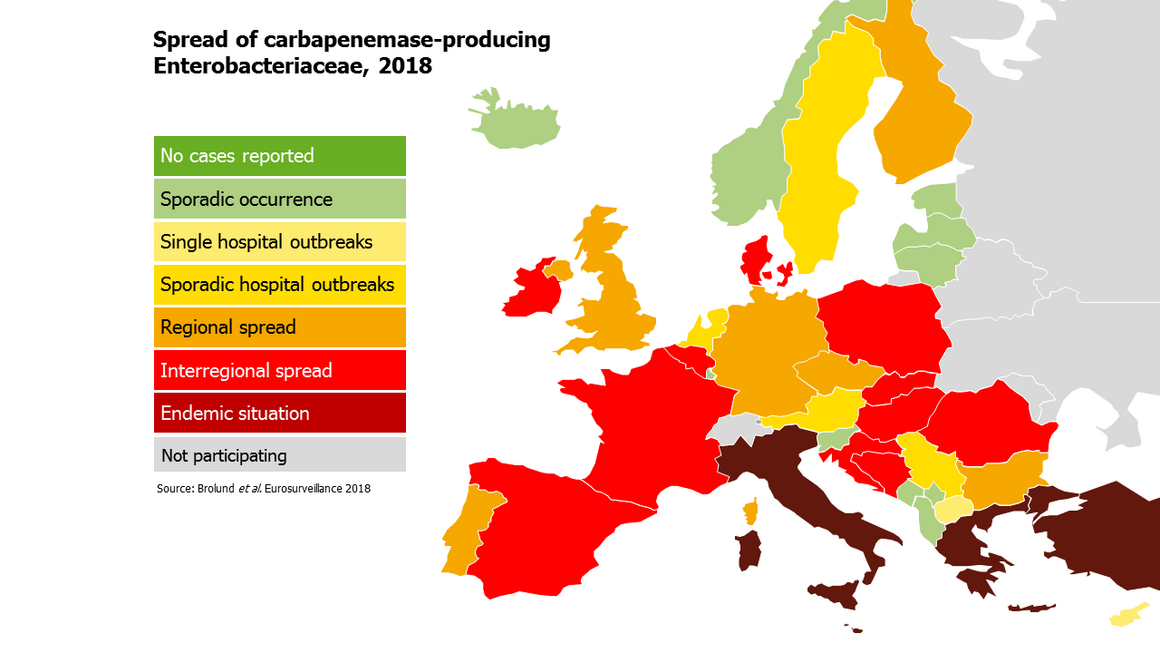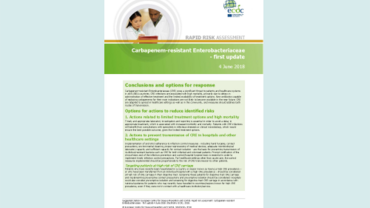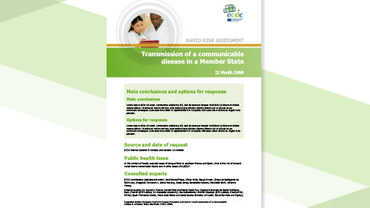European Antimicrobial Resistance Genes Surveillance Network (EURGen-Net)

The European Antimicrobial Resistance Genes Surveillance Network (EURGen-Net) is a network for genomic-based surveillance of multidrug-resistant bacteria of public health importance, coordinated by the European Centre for Disease Prevention and Control (ECDC). National reference laboratories or equivalent laboratories of 37 European countries currently participate in EURGen-Net.
The public health objectives of this European whole genome sequencing (WGS)-based surveillance are to determine the geographic distribution and population dynamics of multidrug-resistant clones and transmissible resistance elements to inform risk assessment, prevention and control polices and to support countries in developing technical capability and proficiency for genomic-based surveillance of multidrug-resistant bacteria with epidemic potential.
In 2019, the network starts its activity with a Europe-wide survey of carbapenem- and/or colistin-resistant Enterobacteriaceae (CCRE survey). A similar survey of carbapenem-resistant Acinetobacter baumannii is planned for 2020/21.
Europe-wide survey of carbapenem- and/or colistin-resistant Enterobacteriaceae (CCRE survey)
The CCRE survey complements the phenotypic antimicrobial resistance data available from the European Antimicrobial Resistance Surveillance Network (EARS-Net) with genomic information to identify high-risk clones and gain a more detailed understanding of transmission pathways. The CCRE survey results will be used at national and European level for risk assessment and decision-making as well as better targeting control measures.
During a six-month period, hospitals and their associated clinical microbiology laboratories in 37 European countries are collecting carbapenem- and/or colistin-resistant Klebsiella pneumoniae and Escherichia coli isolates, as well as corresponding susceptible comparator isolates, based on a scheme that takes into account the countries’ population and geographic structure. The CCRE survey includes a multi-step process starting with collection of bacterial isolates at local hospital level, followed by forwarding of the isolates to the national reference laboratory for confirmatory testing and finally sending the isolates to a central strain collection for subsequent WGS and related analysis. Up to 6000 isolates are expected to be collected and analysed for this CCRE survey.
Protocols for the CCRE survey
EURGen-Net publications
Related publications
European survey of carbapenemase-producing Enterobacteriaceae” (EuSCAPE), 2013-2015
In 2012, the European Centre for Disease Prevention and Control (ECDC) launched the “European survey of carbapenemase-producing Enterobacteriaceae” (EuSCAPE) project. This project demonstrated the feasibility of structured surveys of carbapenemase-producing Enterobacteriaceae at the European level, raised awareness about their spread, and contributed to improving the corresponding laboratory and response capacity in European countries.








